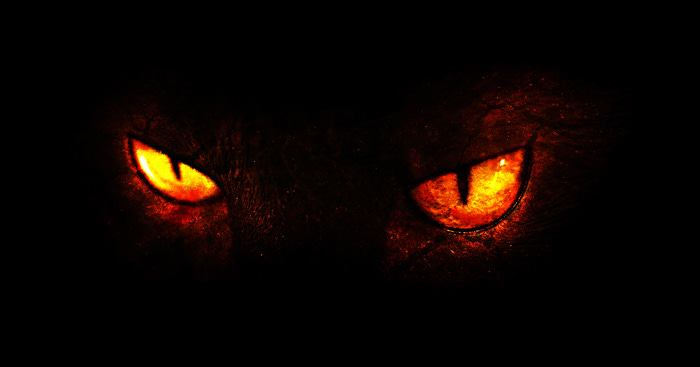The Demons Among Us

Charlie Kirk was not merely killed; he was executed in broad daylight before thousands of witnesses and millions of screens. A father cut down, a public figure shot in front of a crowd, a scene that should have frozen a nation in shock and sorrow. Yet the most revealing part was not the act itself but the reaction that followed. In offices and classrooms, in hospitals and newsrooms, in homes and online feeds, came not horror but laughter, not grief but glee. Memes spread. Justifications were offered. Nurses, lawyers, journalists, professors, even the teachers entrusted with children’s minds treated an assassination as a spectacle to be enjoyed.
That response tore away a mask. A country already polarized suddenly saw something deeper than disagreement. It saw the absence of a moral core. People tried to look into others’ souls and found there was nothing there. They realized they were living among demons.
This language is not metaphor for its own sake. In a healthy society, murder provokes revulsion regardless of politics. In a healthy society, even the fiercest opponents acknowledge the humanity of the fallen. To watch a man gunned down and feel delight is not a difference of opinion; it is a deformation of the soul. It is, in the truest sense of the word, demonic — not horns and fire, but the hollowing-out of conscience until only spite remains.
For decades, civic leaders have preached unity. “We must heal.” “We must come together.” Such calls presume a shared moral substrate, a baseline recognition of human dignity. But the reaction to Kirk’s murder shattered that presumption. There can be no unity with those who celebrate bloodshed. There can be no common ground with people whose first instinct at a killing is to make a joke. One cannot find unity with demons. Demons must be crushed — not with reciprocal violence, but with unyielding moral clarity and the refusal to reward cruelty.
The professions most trusted to uphold decency revealed themselves. Medicine, law, journalism, and education have long wrapped themselves in oaths and codes. Yet in the aftermath of the killing, it was not only anonymous trolls but credentialed elites who laughed, justified, and spread memes. The mask slipped and exposed a generation of zealots where guardians of decency were supposed to be.
Nor was it only elites. In neighborhoods across the country, ordinary citizens posted the same memes, typed the same “he had it coming” replies. A culture marinated in nihilism has produced a citizenry for whom the sanctity of life is conditional. When a society’s instinctive reaction to murder is mockery, that society has lost more than civility; it has lost its soul.
Some will insist that social media exaggerates ugliness, that online posts are not “real life.” But the digital sphere is the nervous system of public life. The same people who typed those words return to hospitals, courtrooms, newsrooms, and classrooms. What appears online is the mask slipping off.
Societies that normalize political murder do not remain societies for long. The difference between a free society and a mob is not the absence of violence but the shared recoil from it. Once that recoil dies, nothing remains but tribes and bloodlust — the very environment in which demons thrive.
The lesson is unavoidable: celebration reveals more than disagreement; it reveals deformed souls. One can debate an opponent, even forgive an enemy. But one cannot reason with someone who feels joy at an assassination. That is not politics; that is the void.
Recognizing this is painful, but necessary. It means admitting that many trusted figures — co-workers, neighbors, leaders — have crossed a line and chosen the void. It means accepting that unity with such people is impossible. Demons do not negotiate. Demons must be crushed — through exposure, isolation, and the rebuilding of a culture where decency is non-negotiable.
Crushing demons does not mean becoming like them. The challenge is to remain human while refusing to grant moral legitimacy to those who cheer at blood. It means rebuilding institutions and communities where life is sacred, where dissent is not a death sentence, where murder is never a punchline. It means refusing to hire, elect, or platform those who have shown their contempt for basic humanity.
Sanitizing what happened is not an option. It must be said plainly: thousands of people celebrated an assassination. Professionals who shape public life revealed themselves as untrustworthy custodians of decency. The mask is off. Only by naming the demons can a society hope to resist them.
The soul of a nation is the sum of millions of individual consciences. When enough consciences go dark, the nation itself becomes monstrous. The assassination of Charlie Kirk was a tragedy; the celebration of it was a revelation. It showed that many have become estranged from the idea of humanity itself.
Demons are defeated not by pretending they do not exist but by refusing to grant them legitimacy. They are defeated by drawing a line and holding it, by telling the truth, by building a culture that rewards compassion and punishes cruelty. They are defeated by citizens who refuse to let their own hearts grow cold.
The murder of Charlie Kirk should have been a moment of national mourning. Instead, it became a moment of moral exposure. The good and decent people in this country now know who lives among it. It knows who has no soul. And it knows that compromise with evil is not possible. We do not negotiate with demons. They must be crushed.